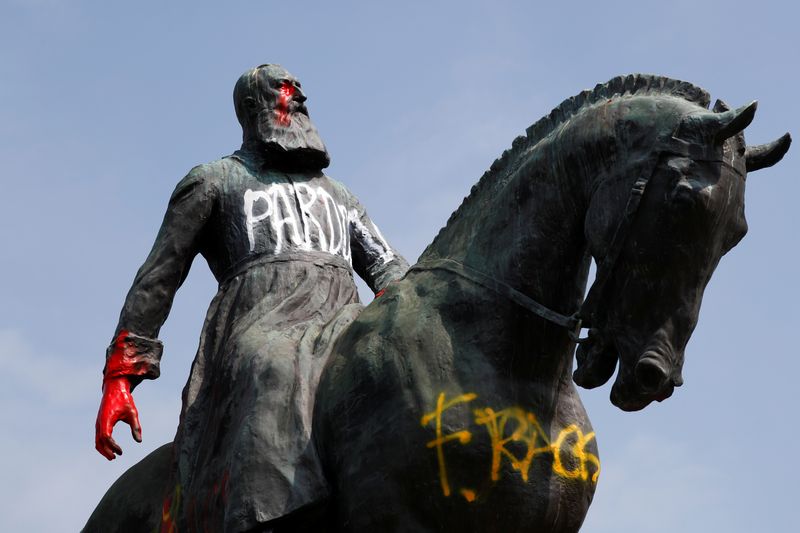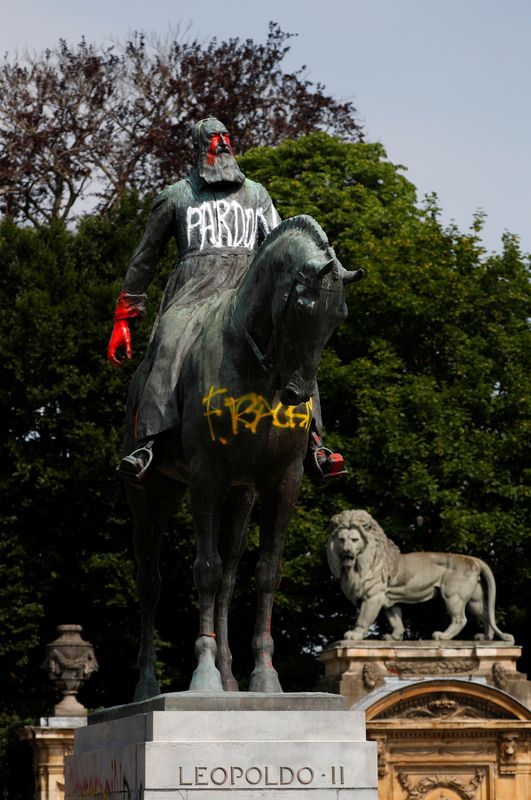BRUSSELS (Reuters) – A Brussels councillor has urged a debate on what to do with statues of Belgian King Leopold II, the brutal coloniser of what is now the Democratic Republic of Congo, which have been defaced by anti-racism protesters.
Statues of the monarch, whose troops killed and maimed millions, have been burned and sprayed since protests over the police killing of black American George Floyd turned global.
Congo Free State was Leopold’s personal fiefdom and source of wealth from 1885-1908, when he was forced to cede it to the Belgian state.
Adam Hochschild, author of the best-selling “King Leopold’s Ghost”, concluded that about half its population perished under the king. Villages that missed rubber collection quotas were made to provide severed hands instead.
Pascal Smet, state secretary for city planning and heritage for the Brussels region, said discussions should include experts and people with African backgrounds, and finish by next year.
“We have all the movement of Black Lives Matter, we are this year 60 years of independence of Congo. We are in a different timeframe now,” he told Reuters TV on Wednesday.
If the conclusion was that the statues should go, he would make this happen, although another option could be to accompany them with explanations about Belgium’s colonial past.
“We take time, but not too long because there’s always a danger with that kind of debate that you start talking and you never stop talking.”
Smet said in any case he wanted a memorial to decolonisation in Brussels, Belgium’s capital and home to European Union institutions.
The city has an equestrian statue of Leopold beside the royal palace – its hands now painted blood-red and its chest reading “Pardon” (Sorry) – along with three busts and a Leopold II road tunnel.
A statue in the city of Mons has been put into storage, and campaigners have demanded the removal of a bust from Leuven University’s library.
Colonialism is now to be taught compulsorily in secondary schools in the Dutch-speaking region of Flanders.
(Reporting by Philip Blenkinsop and Bart Biesemans; Editing by Kevin Liffey)























